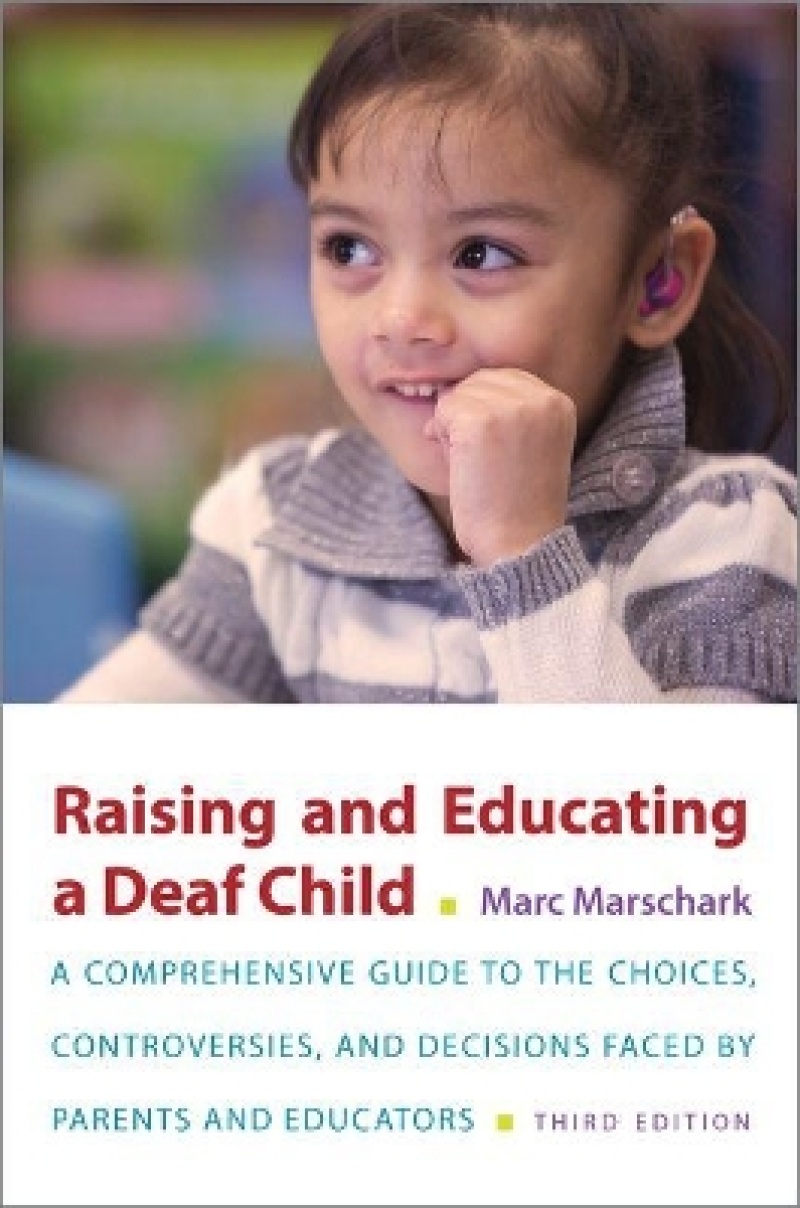"Marc Marschark has once again contributed valuable literature to the field of deaf education...he points out that every child is different and that every method works for some, but nothing works for everyone, based on analyses of up-to-date research studies. He reminds us that the most important and earliest teachers are (or should be) the parent(s). Marschark destroys some myths and provides understandable explanations of technical, linguistic, and cultural
topics. His treatment of cochlear implants is comprehensive, and he gives a needed view of the Least Restrictive Environment as it applies uniquely to Deaf and Hard of Hearing learners. This book is a
valuable tool for both parents and educators in making intelligent decisions for all deaf learners, starting with the earliest possible age."
-David S. Martin, Professor/Dean Emeritus, Gallaudet University, Washington, DC
